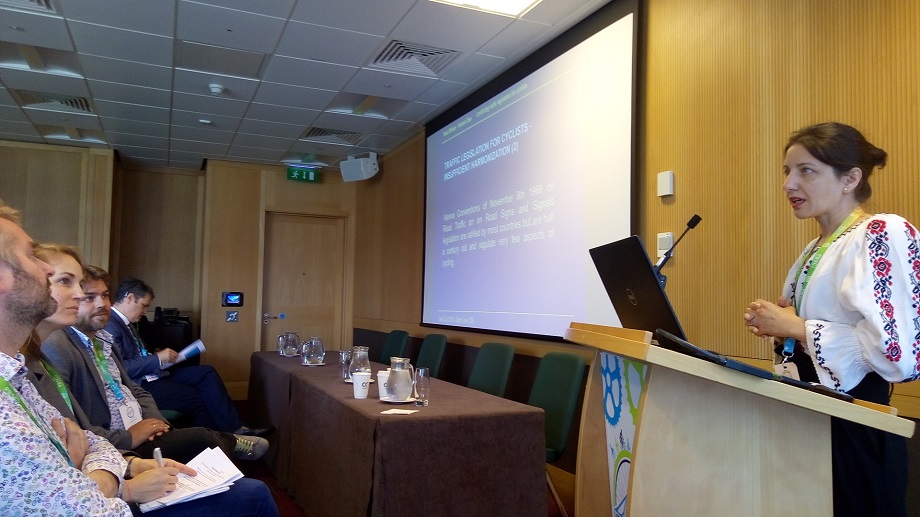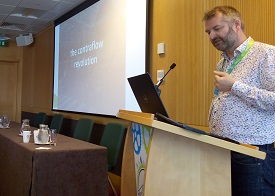
Legislation – support or obstacle for developing cycling?
“Does legislation help you develop cycling and cycling infrastructure or on the contrary, is a hindrance?” - asked Camille Thomé, directress of the Vélo&Territoires network of French cities and regions. Not surprisingly, the answers varied from country to country.
Roxana-Iuliana Cleja, Vice-President of the Bicycle Tourism Club Napoca, started with an example of how legislation or lack of it can be barrier for cycling. In Romania cycling is effectively forbidden until the age of 14, even on cycle paths and under adult supervision. Theoretically this was done to protect kids from harm, but in practice excludes them from access to healthy and affordable mobility choice, sometimes affecting even the school attendance.
Frederik Depoortere, Bicycle Manager of the Brussels Capital Region, demonstrated how good legislation, negotiated between Belgian regions, enabled “contraflow revolution” in Brussels. Contraflow cycling proved to be safe and successful even on major roads. Together with other simple measures, such as legalising turning right on red light for cyclists, it allowed rapid growth of cycling in Brussels. The most recent change is adaptation of legal maximum width of bicycle to make it possible to provide last-mile deliveries by cargo bikes with standard Euro-pallets.
enabled “contraflow revolution” in Brussels. Contraflow cycling proved to be safe and successful even on major roads. Together with other simple measures, such as legalising turning right on red light for cyclists, it allowed rapid growth of cycling in Brussels. The most recent change is adaptation of legal maximum width of bicycle to make it possible to provide last-mile deliveries by cargo bikes with standard Euro-pallets.
Olivier Schneider from the French Federation of Bicycle Users (FUB), followed with more examples of good practice – obligatory inclusion of bicycle infrastructure in road (re)construction projects, obligatory place for bicycles on trains, or cycling education in schools. He stressed that legislation can be both a carrot – supporting right decisions – and a stick – preventing bad ones.
Ceri Woolsgrove, ECF Road Safety and Technical Policy Officer, presented an overview how differently electronically pedal assisted cycles are treated in different European legislation. He praised the European Commission for making motor vehicles safer for pedestrians and cyclists, but criticised for the attempt to include pedelecs in the Motor Insurance Directive.
Following the presentation of case studies, several questions were asked from the audience about the possibility of making the best practice – for example contraflow cycling – universal across the whole EU, as European legislation. “If it is not decided by the EU, it is not going to happen in Romania” – seconded Roxana Cleja. “But legislation is just a tool, not a goal in itself” - reminded Olivier Schneider – “without a political will on local level to use the tool, nothing will happen”. Most of the participants agreed that the legislation should push in the right direction, but be flexible enough to leave room for innovation and experiments.
Contact the author
Recent news!
Upcoming events
Contact Us
Avenue des Arts, 7-8
Postal address: Rue de la Charité, 22
1210 Brussels, Belgium









